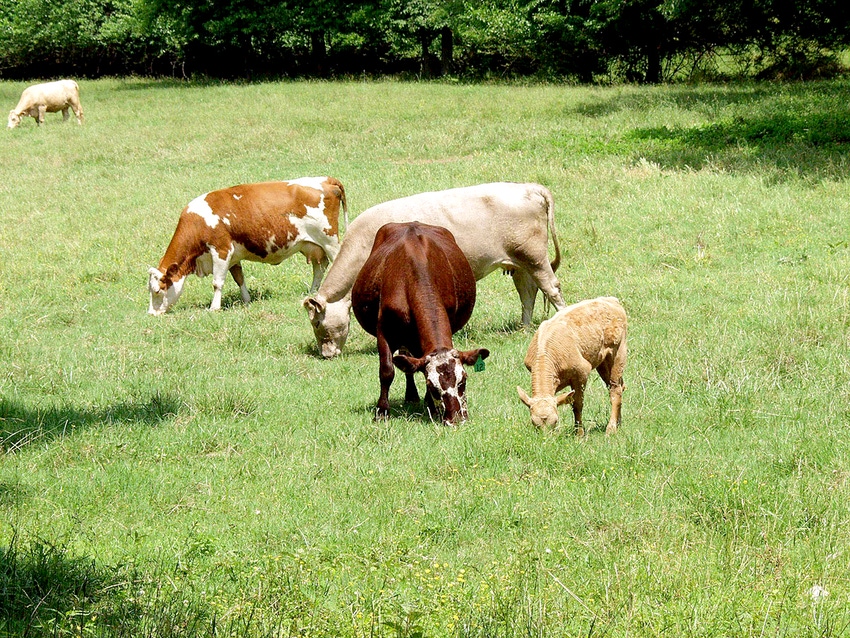February 26, 2020

Maine Congresswoman Chellie Pingree has introduced legislation to lower greenhouse gas emissions in U.S. agriculture to net-zero by 2040.
“The Agriculture Resilience Act is designed as a roadmap to sequester more carbon in the soil and reduce overall greenhouse gas emissions by supporting farmers where they are. We need to empower farmers with the best available science and provide a range of conservation tools, because what works for one farmer in Maine may not work for another in Iowa or Georgia,” said Pingree of her bill. “I have set an ambitious but achievable goal: to reduce agricultural emissions by 50% before 2030 and make this segment of our economy net-zero by 2040. Challenges of this scale demand bold solutions and, unlike other industries, agriculture has a unique opportunity to draw down massive amounts of carbon from the atmosphere and store it in the soil."
Agricultural activities contribute 8.4% of total U.S. greenhouse gas emissions. To reach net-zero agricultural emissions within the next 20 years, the Agriculture Resilience Act focuses on six policy areas and offers science-based, farmer-driven solutions. These goals include:
Increasing Research: The ARA would ensure existing agriculture research programs prioritize climate change research, increase funding for USDA’s Regional Climate Hubs, support public breed and cultivar research, and create a new SARE Agricultural and Food System Resilience Initiative for farmer and rancher research and demonstration grants.
Improving Soil Health: The ARA would create a new soil health grant program for state and tribal governments, authorize USDA to offer performance-based crop insurance discounts for practices that reduce risk, expand the National Agroforestry Center by authorizing three additional regional centers, and explore new ways to reward farmers such as future carbon markets or tax incentives for soil carbon sequestration.
Protecting existing farmland: ARA would increase funding for the Local Agriculture Market Program and create a new subprogram for farm viability and local climate resilience centers to help farmers reach new markets. The bill would also increase funding for the Agriculture Conservation Easement Program and amend the tax code to exclude from gross income the gain from the sale of 1) permanent conservation easements and 2) farm property to beginning, socially disadvantaged, veteran and young farmers.
Supporting pasture-based livestock systems: The ARA would create a new alternative manure management program to support an array of livestock methane management strategies, a new grant program to help very small meat processors cover the costs associated with meeting federal inspection guidelines, and a Grasslands 30 pilot program within the Conservation Reserve Program to enroll grassland that is exiting CRP or at risk of conversion.
Boosting investments in on-farm energy initiatives: The ARA would increase funding for the Rural Energy for America Program, direct USDA to study dual-use renewable energy and cropping or livestock systems, and move the AgSTAR program to NRCS to provide technical assistance to farmers interested in reducing methane emissions through anaerobic digestion.
Reducing food waste: The ARA would standardize food date labels to reduce consumer confusion, create a new USDA program to reduce food waste in schools, and increase federal support for composting and anaerobic digestion food waste-to-energy projects.
Last week, the USDA announced its Agriculture Innovation Agenda, which aims to cut American agricultural emissions in half by 2050. Pingree’s bill would help USDA reach this goal by expanding the agency’s authority and increasing funding for key USDA programs.
Also last week, 21 farm groups came together to launch Farmers for a Sustainable Future, which is committed to environmental and economic stewardship.
The National Sustainable Agriculture Coalition praised the legislation saying, “This marker bill represents our nation’s first piece of comprehensive legislation on climate and agriculture, and includes a host of actionable steps toward achieving net zero emissions by 2040."
"Day in and day out, farmers are on the front lines fighting the drought, floods, pests, and disease pressures that come with a rapidly changing climate," said NSAC Policy Director Eric Deeble. "Farmers know what’s at stake, and they know how important healthy soils and resilient, sustainable ecosystems are to not just the future of farming, but the future of everything."
“Farming has always been a risky business, but unpredictable, extreme weather patterns are creating immense challenges that threaten our nation’s food production and jeopardize the livelihood of American farmers,” said Pingree, a Democrat, and organic farmer of more than 40 years. “Last year, farmers were unable to plant 19.6 million acres of crops due to record-breaking rainfall. We must be proactive to keep farmers on the land and in business.”
You May Also Like




